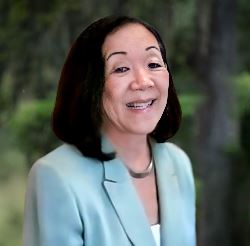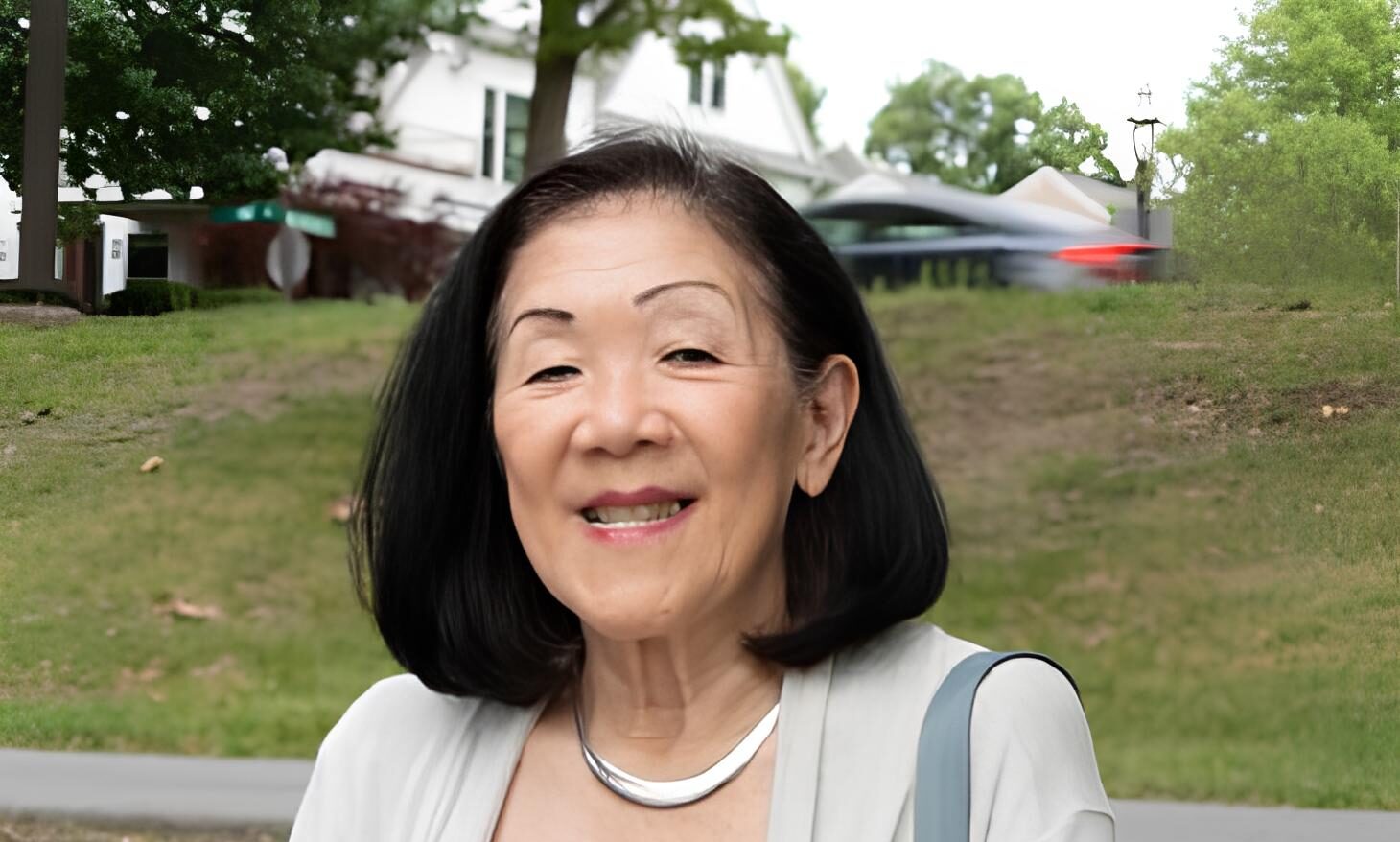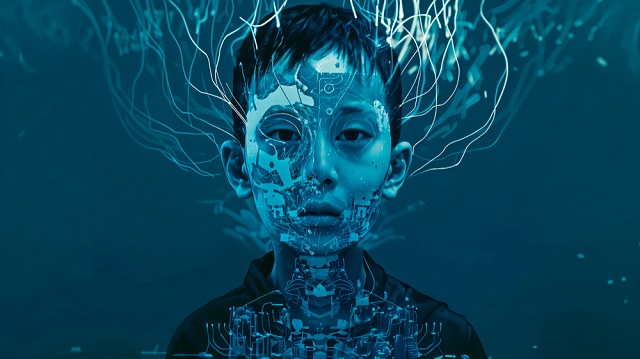In an age of division and discord, Sara Ting stands as a beacon of unity. As the President and Founder of World Unity Inc., this visionary leader, TEDx speaker, and diversity educator has spent nearly four decades advancing equality and building bridges between communities by promoting self-awareness through the Sun Poem. What began with a simple poem written in a personal journal has blossomed into a global movement for equality and inclusion. This is the story of how one woman’s unwavering commitment to unity is transforming hearts and minds across the world.
A Poem That Changed Everything
In 1978, Sara Ting wrote a poem in her personal journal. Little did she know that those words would alter the course of her life and touch countless others. The poem begins with a question – Are you greater than the sun/ that shines on everyone: Black, Brown, Yellow, Red and White/ the sun does not discriminate. Seven years later, in 1985, she shared what would become known as “The Sun Poem” with a friend who worked in advertising.
“She was so moved by it that she displayed the poem on billboards throughout Boston,” Ting recalls.
That simple act sparked a citywide multimedia public service campaign promoting equality and racial harmony. The poem appeared on billboards, television, and mass transit, reaching thousands of Bostonians with its message of equality and inclusion.
The campaign’s success inspired Ting to bring her vision to New York City, working out of her father’s office and making cold calls to secure sponsors. It wasn’t an easy journey.
“I heard the word ‘no’ 51 times,” she reveals. “What kept me going was the success of the campaign in Boston and the poem expressing equality so clearly.”
The Moment Everything Changed
Persistence led to a pivotal meeting with Arthur Barnes, executive director of the Urban Leagues in New York City. When Barnes asked why she was so committed to this cause, Ting’s answer came straight from the heart.
“If God came to me right now and asked if there was one thing in the whole wide world that I would want to do, what would that be? My answer was: ‘To kick off this campaign.’”

Her sincerity moved Barnes to action. He helped garner support from the Chinatown Planning Council, the National Puerto Rican Forum, the American Jewish Congress, and the National Conference of Christians and Jews (now known as the National Conference of Community and Justice) to join the New York Urban League in supporting her campaign.
“This experience opened my eyes to the importance of resilience and perseverance in advancing equality,” Ting reflects. “If I had quit after the 51 rejections, the campaign would never have happened.”
From Personal Pain to Universal Healing
The Sun Poem’s journey continued when Sara was commissioned to produce 4’x8′ poster featuring the Sun Poem for the lobby of the YWCA under the leadership of Pat Bonner Turner. The YWCA’s imperative—the elimination of racism—aligned perfectly with Ting’s mission.
But it was a young woman’s story that truly revealed the poem’s transformative power. She told Ting how the poem had reopened her wounds of discrimination growing up as an Asian American in Boston—and then taught her forgiveness.
“This story had a profound impact on me,” Ting shares. “I felt compelled to find a way to keep the Sun Poem alive and bring it to the world.”
Six years later, in 1993, World Unity Inc. was born with a vision to build a permanent landmark showcasing the Sun Poem.
A Vision That Spans the Globe
What began as a local initiative has expanded far beyond Boston and New York. The Sun Poem has inspired programs like “Singing Equality Across America and Around the World,” a TEDx Talk titled “Uncover and Overcome All Unconscious Biases,” and an annual World Unity Inc. Diversity and Inclusion Leadership Gala, now in its 27th year.
In 2024, the City Council passed a resolution recognizing the Sun Poem as a powerful tool to ignite change.
“Laws, policies, and technology cannot eliminate unconscious biases all humans have,” Ting explains. “Individuals must remove them. Our initiatives and mission are needed now more than ever!”
The Universal Language of Change
Ting’s work spans multiple sectors, including education, law enforcement, healthcare, and housing. Despite the different challenges each field presents, she has found that certain principles apply universally.
“All these fields of work are made up of individuals who share universal life experiences and emotions,” she points out. “I tailor my training program to address the unique challenges of each sector by incorporating relevant stories, poems, case studies, and engaging conversations with thought-provoking questions.”
Unconscious biases, assumptions, judgments, and group thinking are common ways people exhibit their biases, regardless of their field of work. Ting’s training acknowledges that everyone is susceptible to these biases, making it crucial to address them directly.
Building a Monument to Unity
Among Ting’s most ambitious projects is the creation of a permanent landmark featuring the Sun Poem. This vision reflects her belief in the poem’s timeless, universal, and transformative message.
“No nation is free of prejudice and bias,” she asserts. “Knowing it can teach forgiveness was the biggest driving force behind this vision to build a permanent landmark showcasing the Sun Poem. There is so much forgiveness needed in nations with a history of discrimination. The Sun Poem can ignite this feeling. The World Unity Landmark can bring healing to the world.”
Five Minutes to Transform the World
Ting’s book, “Small Book with a Big Idea, 5 Minute Training To Empower You and Transform Our World,” has been widely adopted by colleges and organizations. Its power lies in its simplicity—addressing a complex issue that has plagued humanity for centuries in an accessible, actionable way.
“The book is timeless, universal, and transformative,” Ting explains. “It will never be outdated. The 5-minute exercise addresses all unconscious biases and even future ones that will be created by AI.”
Dr. Philips, one of many professionals who has embraced the book, described it succinctly: “Small Book with life-changing ideas, dynamite.”
The Poet as Change-Maker
As a poet-in-residence for over 20 years, Ting has taught students the art of writing poetry. She sees poetry as a powerful medium for social change and self-awareness.
“Poetry speaks to the heart and soul—that is the very place where change needs to take place,” she reflects. “Poems can transcend differences. I recall sharing a poem about my experience as an Asian American, and an African American connected deeply with it.”
Poems that express universal experiences can transform minds and hearts, promoting social justice and equality. They tell the truth in a clear, undeniable way, opening people’s eyes to realities they may have overlooked.
Overcoming Resistance to Change
Diversity, equity, and inclusion efforts sometimes face resistance. Ting has developed effective strategies for overcoming skepticism and fostering genuine engagement.
“First, you need to understand your audience, present DEI in a positive way, demonstrating its value to participants’ personal and professional growth, benefits to workplace experience, and community,” she advises. “Second, confront your own unconscious bias. Third, create a safe space to have an engaging dialogue for people to share stories, laugh, and even be vulnerable.”
Lessons from a Lifetime of Advocacy
Reflecting on her decades of work promoting racial and ethnic harmony, Ting offers key takeaways:
- Always be willing to ask
- Think outside the box
- Be open to the unexpected
- Stay focused on your mission
- Keep the faith and persevere
These principles have guided her through challenges and successes alike, from those initial 51 rejections to the widespread adoption of her programs by institutions like Boston College, Babson College, and major corporations.
The Ripple Effect of One Poem
The impact of Ting’s work is evident in the feedback she’s received. Students tell her they feel inspired after attending the annual event. Major corporations like Merck and KPMS attend and guests from KPMG reported their guests had, “magnificent time.
Dr. Patty Klibansky, Director for the Arts, Theatre and Dance, offered this praise: “Sara Ting’s Sun Poem emerges as a profound beacon of relevance in a world marred by division and unrest. We are in a time when we yearn for the presence of insightful leaders; and Sara’s poetic masterpiece serves as a call for peace and unity. Beyond being a visionary, she encapsulates the essence of inspiration, urging us all to aspire to greater heights of humanity.”
Klibansky’s school created the Sun Poem Project in their curriculum, which will reach over 15,500 students every year—a powerful example of the poem’s continuing influence.
Measuring Success Through Changed Hearts
For Ting, success is measured in transformed attitudes and behaviours. A police officer who participated in her training shared: “I learned to approach life with an open mindedness and that we can change biases embedded in us from past generations and experiences.”
A student who experienced the “Singing Equality” program said: “When I sing this song, it makes me feel like I can do anything.”
Another young participant expressed: “One day the world will hear the song, and it will end discrimination.”
In healthcare, where diversity and inclusion can literally be matters of life and death, a clinical research coordinator at Massachusetts General Hospital noted that Ting’s TEDx Talk “could dramatically improve patient care” by making practitioners aware of how a simple look can make a patient feel unwanted.
Facing Today’s Challenges
Despite progress, Ting acknowledges significant challenges in advancing equality, diversity, and inclusion:
- People’s fear of differences, resistance to change, reluctance to take responsibility for removing their unconscious biases, and unwillingness to share power and wealth
- The need for leaders to develop a collaborative mindset
- The importance of funders asking the right questions in their grants and using the correct metrics to evaluate the success of diversity, equity, and inclusion
- Understanding the impact social media and AI are having on diversity, equity, and inclusion
Drawing on her experience as a media professional spanning roles as a TV reporter, radio host, and Public Affairs Director—Ting observes that media has not always provided an accurate understanding of diversity and inclusion.
“There’s been more stories focused on what people are against—anti-racism, anti-Semitism—versus what people are for,” she notes. “There hasn’t been enough emphasis showing the value of diversity and inclusion, benefits to the workplace, and especially financial gains. Studies have shown companies with diversity generated 19% higher innovative revenues.”
As Ting looks ahead, she envisions her initiatives reaching even more people and organizations. She hopes that more companies will adopt her TEDx Talk as a resource tool, joining global organizations like AECOM, Merck, and KPMG, and companies like AAFCAPA’s, Media Cause as well as educational institutions like Babson College, Suffolk University, Midwestern University, Revere Public Schools, cities like Lowell and Revere, law firms like Law Office of Peter T. Marano and non-profits like Meet Boston, Nubian Square Foundation, PA Turnpike Commission and Write the World.
She dreams of seeing “Singing Equality Across America and Around the World” in school curriculums nationwide and beyond, and of “We All See the Stars” by John Ciambriello being performed at major events.
Most ambitiously, she seeks philanthropists and companies who want to leave a legacy by championing the building of the World Unity Landmark.
Wisdom for the Next Generation
For emerging leaders and professionals who want to make a meaningful impact in the DEI space, Ting offers this wisdom:
“First, develop self-awareness, be willing to face your unconscious bias, and step out of your comfort zone. Always be true to yourself, discover your natural gifts, and find work that allows them to come forth. Be guided by values, not the external world.”
She advises using timeless, universal principles when making major decisions, asking: “Why am I doing this?” and “If today was the last day on earth, would you go forth?”
“Set your own goals, don’t compare yourself to others,” she continues. “Surround yourself with people who truly believe in you, support you, and are not competing with you. Don’t limit your imagination. Be curious, think big. Understand that no one achieves success by themselves. You need a great team of people who believe in your vision.”
Finally, she encourages aspiring change-makers to recognize the value of their life journey:
“Your life is a gift. All the challenges you faced and overcame made you a stronger person. Your time on earth is limited. What mark do you want to leave that made a difference?”
In her own words, which capture the essence of her life’s work:
“Dare to be as great as the sun. Dare to shine on everyone.”
As the world continues to grapple with division and discord, Sara Ting’s message of unity shines ever brighter. Her journey—from a personal poem to a global movement—reminds us of the power of persistence, the healing potential of art, and the capacity of one person to illuminate a path toward a more equitable world.




